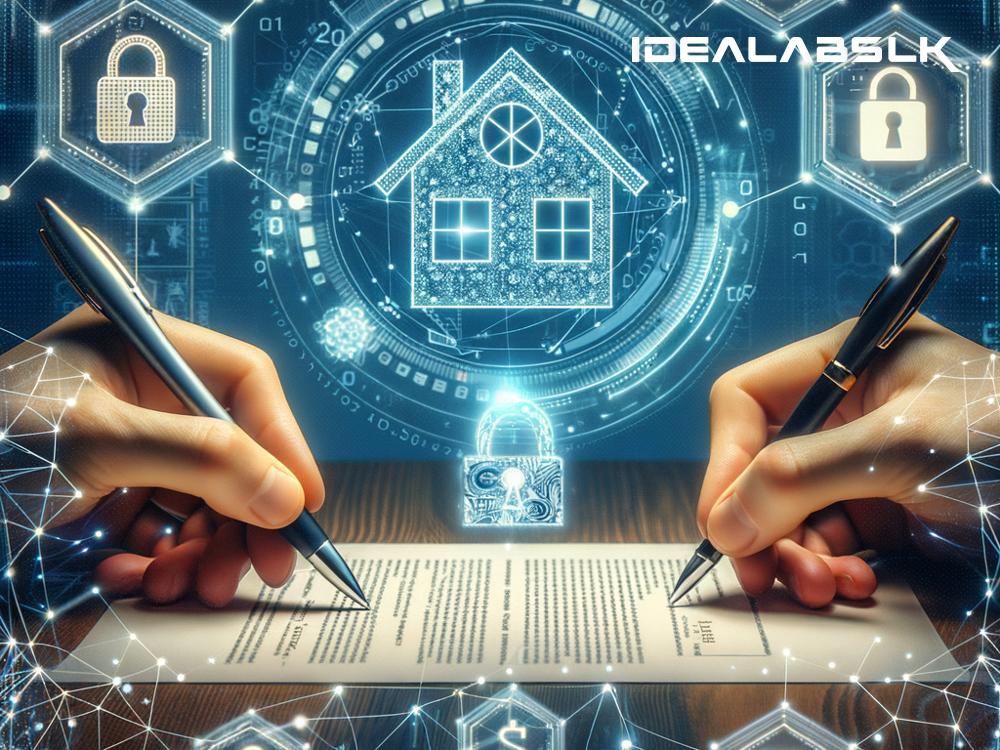Unlocking a New Era: Blockchain in Real Estate Escrow Processes
The real estate industry, with its grand skyscrapers and sprawling residential complexes, seems ageless and immovable. However, beneath its sturdy foundations, the processes that facilitate property transactions, specifically the escrow phase, are ripe for evolution. Enter Blockchain, a technology with the potential to revolutionize how we buy and sell property, making the process more secure, transparent, and efficient.
Understanding the Basics
Before diving into the world of blockchain and its impact on real estate transactions, let's demystify the concept of escrow. In simple terms, escrow is a neutral, third-party service that holds onto money and documents until both the buyer and seller fulfill their obligations outlined in a contract. This mechanism ensures fairness and security in the transaction, protecting both parties from potential fraud or default.
The Challenges of Traditional Escrow
While the escrow process is a foundational aspect of real estate transactions, it's not without its issues. The process can be slow, taking days or even weeks to finalize. It's also costly due to various fees charged by the escrow service, not to mention opaque, as buyers and sellers often have limited visibility into each step of the transaction. These pain points create a longing for a more streamlined approach.
Enter Blockchain
Blockchain technology, best known for underpinning cryptocurrencies like Bitcoin, offers a promising solution to these escrow challenges. At its heart, a blockchain is a decentralized ledger that records transactions across numerous computers. This setup makes it nearly impossible to alter records retroactively, ensuring a high level of security and transparency.
But how exactly does blockchain reinvent the escrow process in real estate transactions? Let's break it down.
Enhanced Security
Blockchain's inherent security features are a game-changer for escrow processes. Each transaction, once recorded on the blockchain, becomes immutable, meaning it cannot be changed or tampered with. This significantly reduces the risk of fraud, giving both buyers and sellers peace of mind that their transaction is secure.
Streamlined Processes
Blockchain allows for the use of smart contracts — self-executing contracts with the terms of the agreement directly written into code. In the context of real estate, this means that once pre-set conditions are met (such as the buyer depositing the agreed-upon amount), the ownership transfer and other paperwork can automatically proceed without the need for manual intervention. This not only speeds up the escrow process but also eliminates human error and the need for a middleman, reducing costs.
Transparency and Trust
One of blockchain's standout features is its transparency. Every transaction is recorded on a public ledger, accessible by all parties involved. This level of openness ensures that both the buyer and seller have a clear view of the transaction process, fostering trust. Furthermore, the immutable nature of blockchain records means that once a transaction is made, its authenticity can always be verified, adding an additional layer of security to the process.
The Future Is Now
Innovations in blockchain are already making waves in the real estate sector. Companies and startups worldwide are exploring how this technology can streamline property listings, payments, and, most importantly, the escrow process. While widespread adoption is still on the horizon, early adopters are proving that blockchain can, in fact, make real estate transactions quicker, cheaper, and more reliable.
Conclusion
The integration of blockchain into real estate escrow processes heralds a new era of efficiency, security, and transparency for buyers, sellers, and everyone in between. As we stand on the brink of this transformative wave, it's clear that the old, cumbersome ways of conducting property transactions are set to be replaced by this groundbreaking technology. By simplifying and securing one of life’s most significant transactions, blockchain isn't just changing the game; it's setting new rules for how real estate transactions can and should be done. The journey into this brave new world has just begun, promising a brighter, more secure future for property transactions across the globe.

